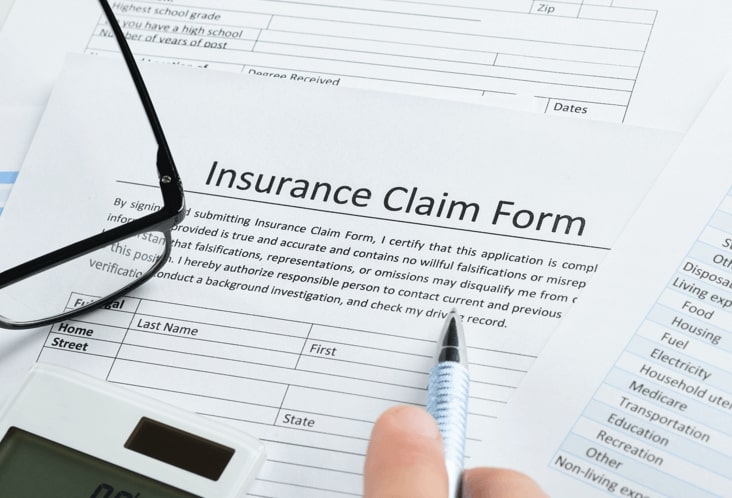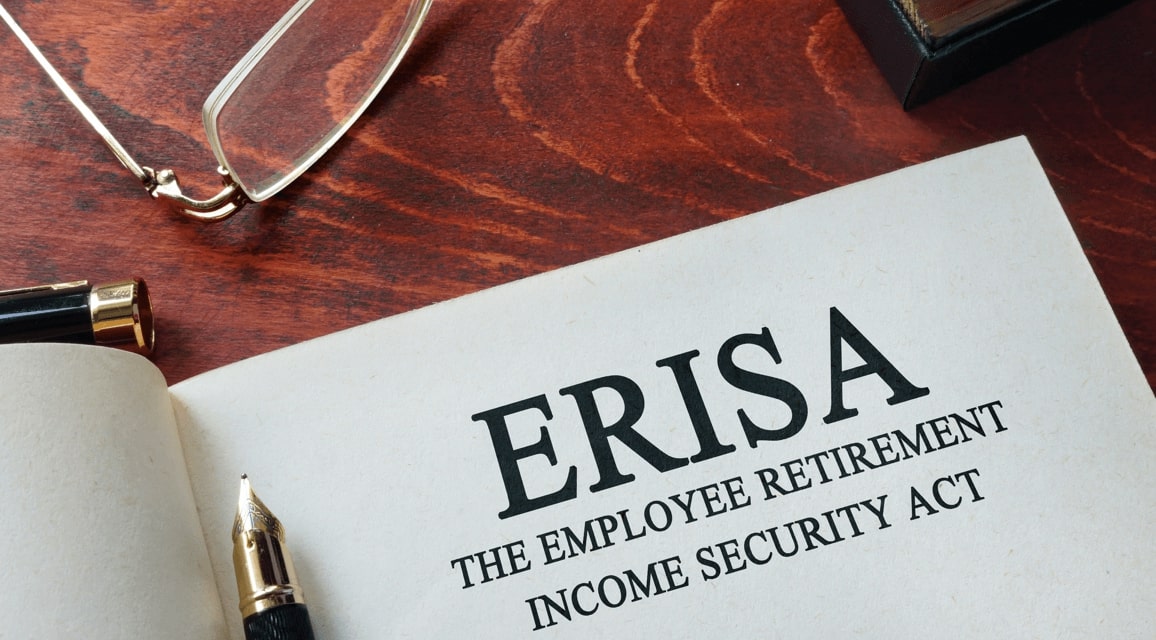We take care of fighting for you, so you can focus on what matters most – your health
Long-Term Disability Benefits Legal Services
How We Help You with Long-Term Disability
Erin and her team focus exclusively on disability benefits law in Arizona and California

Submitting Your Long-Term Disability Benefits Claim
3 Things You Should Know Before Filing Your Claim
- Every policy or “plan” is unique, so you should secure pertinent coverage documents before proceeding in order to understand your benefits.
- Your benefits can be denied based on specific policy terms and provisions, such as mental nervous limitations. Be aware before you file.
- Many insurance carriers misrepresent coverage or the governing law, so you should speak with an attorney to better understand what laws apply to the insurance company’s conduct. This will help you understand your rights.
We help you avoid potential pitfalls when submitting a disability claim.
When submitting a claim it’s imperative that you understand:
- Your specific coverage. Including whether you possess the correct and complete policy documents, and what it means to be Disabled
- The governing law. Together we’ll determine whether your policy is governed by State law (Insurance Bad Faith) vs. ERISA which impacts how you should submit your claim
- Any provisions such as total versus residual disability assessment

Assisting You with Long-Term Disability Benefits Appeals/Denials and Terminations
4 Commonly Made Mistakes When Appealing Claim Denials
- Failing to send a written request for all relevant documents before appealing.
- Appealing a denial based on emotion and not facts.
- Appealing in haste or too soon (you may foreclose the ability to present evidence later).
- Failing to gather all documentation that can support your claim.
We invest a tremendous amount of time in tailoring a strategy to secure your benefits during the appeals process.
When we represent clients on appeal, we often submit some or all of the following:
- Evidence to support and explain your disabling conditions
- A rebuttal to the insurance company’s reasons for denial
- Exposure of the insurance company’s bias

Do You Need to File a Disability Lawsuit?
Your ability to file a lawsuit depends on several factors. The law that applies to your disability benefits impacts when (and where) you should file a lawsuit. Other considerations include the strength of your claim and time limitations.
We take pride in trying to secure the most relief possible for our clients, regardless of the law that applies.
Don’t Give Up or Go It Alone. Let Us Fight for Long-Term Disability Benefits You Deserve.
We Handle the Insurance Companies so You Can Focus on Your Health.
If you have any questions about whether you should file a lawsuit, contact us for a free consultation on how to proceed.

Lump Sum Settlements
Long-term Disability claims are sometimes resolved by settlement. It’s important to seek legal advice as quickly as you can if you receive a buy-out offer, because there are usually short timelines associated with the offer.
Many insurance companies offer to pay a certain amount of your LTD attorney’s fees to help you secure legal advice. You have nothing to lose in speaking with an attorney about the buy-out offer and your options, especially if you do so very soon after receiving an offer.

Claims Management
If you are receiving long-term disability (LTD) benefits, you are responsible for managing your claim to avoid an interruption of benefits. Most LTD plans require claims administrators (often the insurance company) to conduct frequent file reviews to see if you still meet the policy’s definition of ‘disabled’. This can include checking in on your medical records, interviewing physicians, requesting additional medical exams, and even conducting surveillance on you without your knowledge.
Because of this, it is extremely important to manage your LTD claim at all times and try to be one step ahead of the game. Claims management can be overwhelming and time consuming for many people, which is why we are here to help you during this process.
When & Why Hire An Attorney
While you can submit your own appeal, doing so is risky. A poorly prepared appellate record can severely hurt your case.

Avoid Any Pitfalls from the Start

No Fees Unless We Win Your Claim

We’re Here for the Long Haul
Most firms do not provide continued support after your case is won, but we do. We provide you with additional care and protection, because insurance companies use tactics to avoid paying disability benefits after claims are won.

We are Experienced in Battling Insurance Companies
Insurance companies want you to give up – they save money when you do. Don’t give up! We routinely go up against insurance companies and know what it takes to get your benefits. With so much at stake to protect your livelihood, don’t go at it alone.

Case Evaluations are 100% Free
Should we decide to review your case, we provide an initial consultation at no cost. We treat you with compassion and strive to provide you with an honest assessment of moving forward.
Get the Help You Need– We’re Here for You.
Case evaluations are 100% free and you are under no obligation to hire our law firm. We will vigorously represent you and not back to insurance companies.
Long-Term Disability Laws & Guiding Rules
Learn more about whether ERISA or Insurance Bad Faith applies to your Arizona case
ERISA / Employee Retirement Income Security Act of 1974
ERISA is a federal law that was enacted to protect participants in employee pension plans and other benefit plans offered by employers. ERISA covers employer-sponsored medical, disability, and other benefit programs. Under ERISA, plan participants and beneficiaries may seek relief for breaches of fiduciary responsibility, denial of benefits, or failure to provide adequate disclosures of plan terms or benefit changes.
Insurance Bad Faith
In Arizona, insurance companies are subject to the common law duty of good faith and fair dealing when handling disability insurance claims that are not subject to ERISA. This duty is less than the fiduciary duty imposed by ERISA, which requires insurers to put your interests ahead of its own, but ultimately provides you with more robust remedies in court.
Frequently Asked Questions
Can I apply for short-term disability or long-term disability through your firm?
Yes, as long as you already have coverage, we can help you submit the necessary “proof of loss,” or claim forms, to initiate a claim. If you have a short-term or long-term disability benefits policy through an employer or that you purchased privately with an insurance carrier, such as Cigna, MetLife, Hartford, Guardian, or the like, we can help you with the process of applying and understanding your coverage.
How do I apply for short-term disability and/or long-term disability benefits through my employer?
Can I work while receiving short-term disability and/or long-term disability benefits?
My long-term disability benefits claim was denied. Why did this happen?
Insurance companies deny or terminate claims for many reasons. One common reason is the purported failure to meet the definition of “disability.” Many long-term disability policies have changes in the definition of “disability” after 24 months of benefits, requiring you to be disabled not just from your “own occupation,” but from “any occupation.” The insurance company will frequently “cherry pick” your medical records, even retain an “independent” medical reviewer to build evidence against you, despite the fact that you’ve never been personally evaluated by that reviewer. Although the road ahead can seem difficult, don’t give up on disability benefits you rightfully deserve. Insurance companies often count on you not fighting your benefits, thus saving them from paying you for the months – and often years – of benefits to which you’re entitled. We’ve secured millions of dollars in benefits for our clients and can help you, too. Contact us, and we will help investigate and explain why this happened and how to can help.
Can the insurance company rely on other doctors’ opinions besides my own doctors?
Should I apply for SSDI?
The insurance company claims they can deduct the amount I’m receiving in SSDI from my monthly LTD benefit amount. Can they do that?
Should I resign from my job if I need to go out on disability?
Can I submit a claim for private disability benefits if I was injured at work?
Does the law require my employer to provide me with private disability coverage?





